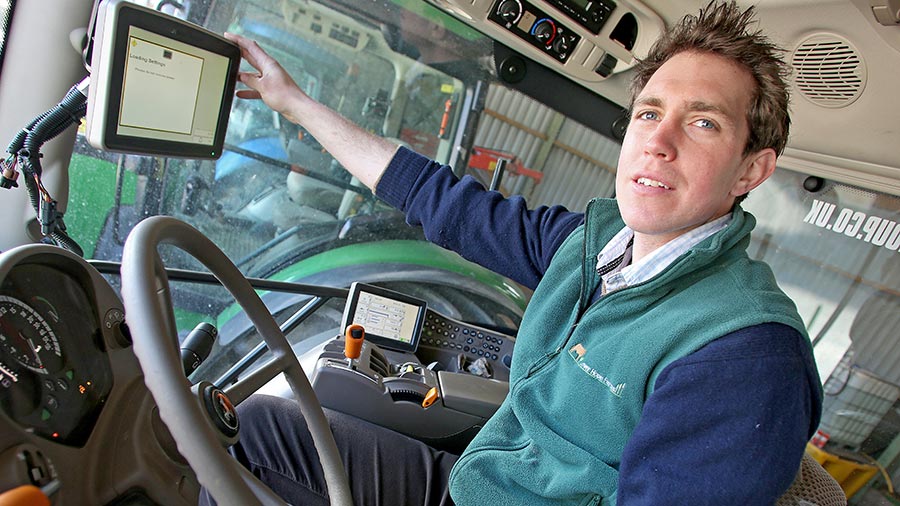Farmer Focus: Manic push to end the autumn drilling campaign
 Jack Hopkins © Richard Stanton
Jack Hopkins © Richard Stanton The autumn drilling campaign was completed on 19 October after another seven-day manic push.
In all, 294ha of winter barley, winter wheat and winter beans were planted in 15 days (split over two seven-day periods) with a 3m machine. A fantastic effort by the team and one that we are quite proud of.
The second half of the campaign was a little more challenging and took a bit of patience as the ground took time to dry off before an acceptable seed-bed was achieved in a single pass.
See also: Saltash Monitor Farm hopes to earn more from stewardship
We are becoming increasingly aware of the impacts that weather events in the period of seven to 10 days after drilling are having on crops. This has just as big an impact, if not more, than conditions at drilling.
For us, a wet end to October (117mm for the month) has affected establishment in a few wet areas and on some headlands. On a more positive note, the winter beans went into the best conditions for three years.
The demonstration of a direct disc drill allowed us to drill wheat straight into a five-year grass ley. I look forward to seeing how this crop develops and how we evaluate the inputs that go into it.
As the fieldwork starts to tail off at this time of year, the diary starts to fill with meetings. One that we are looking forward to is our first winter meeting of our AHDB Monitor Farm tenure, with the very topical title “Zero-carbon farming”.
At our brief AHDB Monitor Farm induction meeting with AHDB’s carbon expert Harley Stoddart, a point was raised that “focusing on cost of production and efficiencies on all the key areas of production would have a knock-on benefit to carbon dioxide emissions, while building more streamline businesses fit for the future”.
The final passing comment was: “Don’t sell yourselves out too early in the trade of carbon sequestration.”


